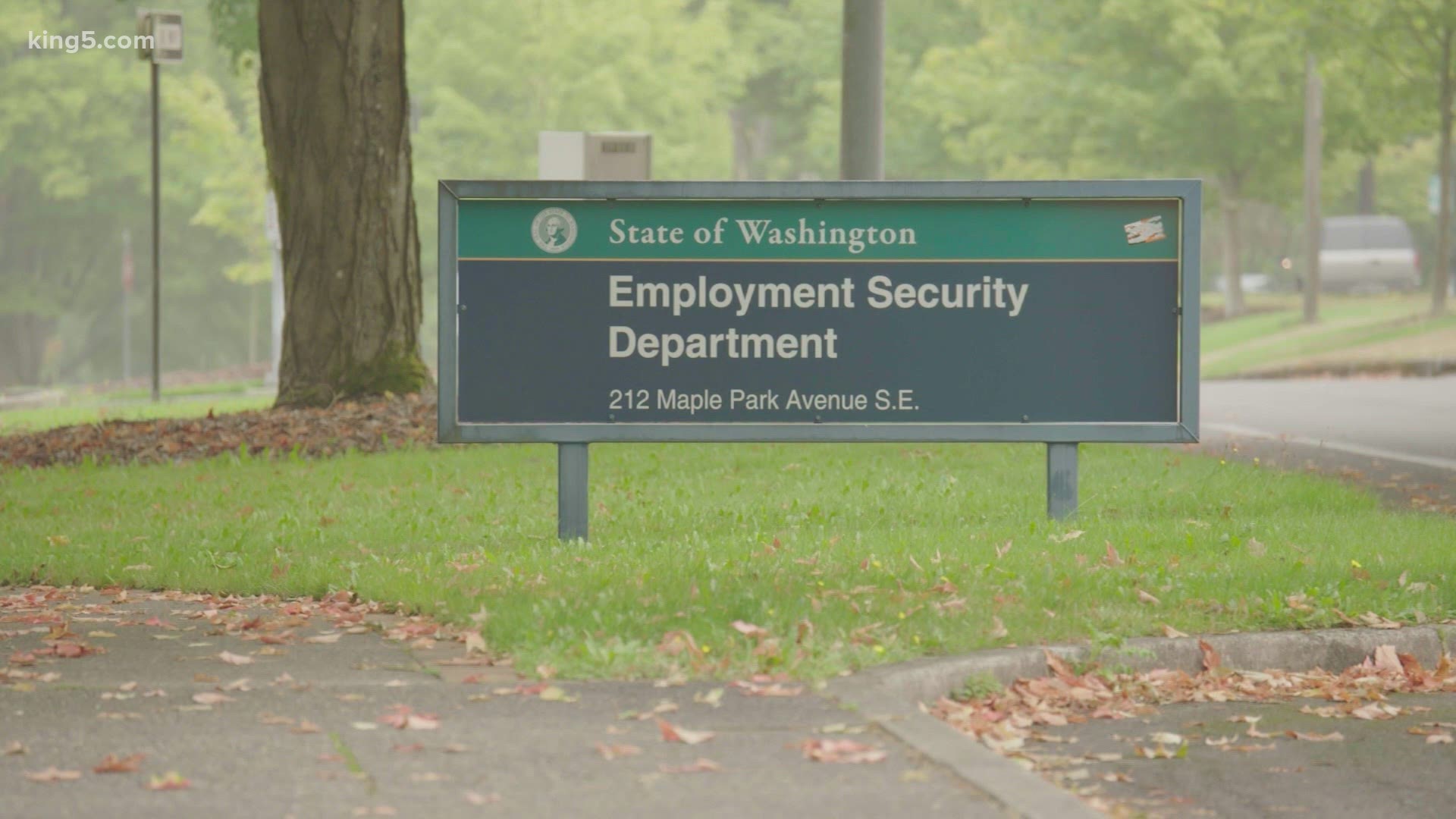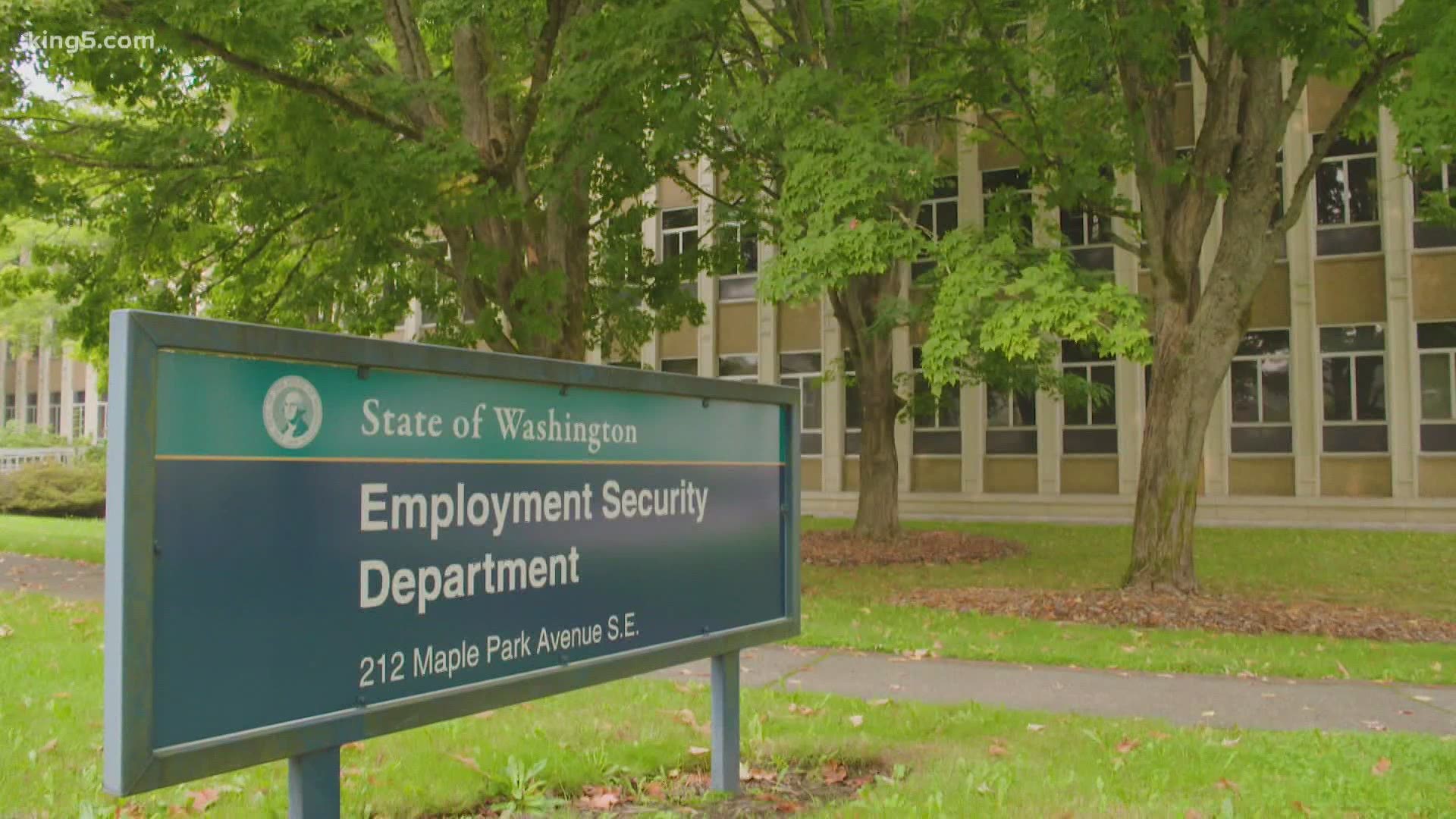OLYMPIA, Wash. — Records obtained by the KING 5 Investigators show fraudulent unemployment claims were filed last year in the stolen identities of 59 employees who work at the state’s Employment Security Department (ESD).
In 10 of those cases, ESD spotted the fraud after it had paid the claim to the fraudster’s bank account. The documents, provided in response to a public records request submitted seven months ago, do not show how much money was paid out.
The new information underscores the employment agency’s dismal performance safeguarding the public’s money in the early days of the coronavirus pandemic last year.
ESD disabled security and verification processes to speed payments to tens of thousands of Washington workers who lost their jobs.
That left a claims process that was so exposed to fraud that ESD couldn’t even identify when its own employees – who were still coming to work every day – were targeted.
“It defies description. It’s unbelievable,” said Chris Monroe, an unemployed musician in Seattle who has been trying for seven months to obtain his unemployment benefits.
Monroe, a professional drummer who lost his gig at The 5th Avenue Theatre soon after the pandemic struck, had a fraudulent claim filed in his name sometime during early 2020.
He found that out when he tried to file a legitimate unemployment claim on June 5.
“They said ‘Oh, someone else is using your name,'” Monroe said, of his first contact with ESD last summer.
Since that time — seven months later — ESD still has not been able to clear his account so that he can file his claim.
“What can I say? It’s extremely frustrating and yes it makes me angry,” Monroe said upon learning that ESD couldn’t even stop fraudulent payments filed in the name of ESD employees.
“I’ve been a legit employee and paid into the system,” Monroe said.
Monroe has not had a paycheck or an unemployment payment in the months he’s been out of work.
ESD’s spokesperson declined an on-camera interview request, but in a written statement said, “Only a very small number of ESD employees appear to have had fraudulent claims paid out in their names.”
The spokesperson said the agency “did, however, respond swiftly and nimbly” once the fraud was determined.
The agency said it could not comment on Chris Monroe’s case because of “federal privacy laws.”
In the past, ESD Commissioner Suzi LeVine said a number of factors contributed to the state’s largest fraud: the pandemic, a desire to process claims quickly for the growing numbers of jobless workers, a small ESD workforce, and fraud rings that were waiting in the wings with identities stolen from past security breaches that did not involve ESD.
ESD has said approximately 120,000 fraudulent claims were filed in Washington with more than $600 million in payouts. More than half of that money has been recovered by investigators who are tracking fraud rings both here in the U.S. and abroad that are responsible for the crimes.
Anne Paxton, the policy director for the Unemployment Law Project, said ESD has been relying too much on technology to process claims and not enough on people – staff.
“The computer is your friend up until it’s not your friend,” Paxton said.
Paxton's agency provides low cost or free representation to people who have been denied unemployment benefits.
Paxton suspects that an automated computer system processed fraudulent payments in the stolen names of ESD employees, something that a live employee would have caught.
After the wave of fraud was crystal clear, ESD ratcheted up the security and verification process and that has created a claims backlog like the one Chris Monroe is caught in.
Paxton said ESD continues to rely on technology and computers to help them clear that backlog, but that has led to more improper delays and denials for applicants.
“We’re hoping that they’ll reorient their emphasis, away from the IT system,” Paxton said.
She said ESD needs to hire more staff to fix individual’s problems.
Paxton recommends that people like Chris Monroe call ESD’s phone number to get a live person on the phone, even though the wait times can be hours long.
“If you get hold of the right person, and that's not always guaranteed, but if you do, you can solve problems fast, you know, the computer just isn't the fastest option on everything,” she said.


